I much prefer focusing on preventive health than on emergency triage. I’d rather be writing about how to prevent climate destabilization and global heating from getting worse (and I’ve been doing that for years and will continue to do that), but tragically, we have entered the age of climate consequences, and adaptation has become necessary. The climate outcomes that scientists have been warning us about for decades are here, now, everywhere, and getting worse every year. Climate instability is already causing widespread suffering, misery, displacement and migration, medical emergencies, and death. If people continue to accept and allow the burning of fossil fuels (and the degradation of our natural environment) going forward, we will get to where we are headed: we will turn our once quite habitable and hospitable Earth into an uninhabitable planet more like Mars. We are creating Hell on Earth.
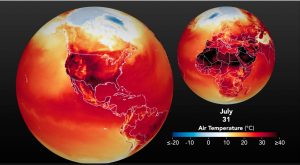 Globally, this has been the hottest summer on record (which has included the hottest day, hottest week, and hottest month ever recorded)—and it’s not just because of El Niño. The last decade (which included years with a heat-tempering La Niña) has also been the hottest decade ever recorded. Unlike the “heat waves” of the past, we are now experiencing more frequent “heat domes” with unprecedented, sweltering, record-shattering daytime and night-time temperatures, across large swaths of the planet, lingering for longer periods of time. The air, land, oceans and most other water bodies are now hotter than ever, with devastating and cascading consequences for all living things.
Globally, this has been the hottest summer on record (which has included the hottest day, hottest week, and hottest month ever recorded)—and it’s not just because of El Niño. The last decade (which included years with a heat-tempering La Niña) has also been the hottest decade ever recorded. Unlike the “heat waves” of the past, we are now experiencing more frequent “heat domes” with unprecedented, sweltering, record-shattering daytime and night-time temperatures, across large swaths of the planet, lingering for longer periods of time. The air, land, oceans and most other water bodies are now hotter than ever, with devastating and cascading consequences for all living things.
When we’re extremely hot, it can be hard to move, hard to work, hard to think, hard to function, hard to cope, and sometimes even hard to stay alive. Heat typically kills more people than any other type of extreme weather event in the U.S. The number of heat-related deaths is often greatly underestimated, as heat is not usually listed as the “cause of death,” even when heat is what precipitated the organ failure or heart attack or other final outcome. This study estimated that there are approximately 12,000 premature deaths from heat exposure in the U.S. each year, and it projected that that number will rise to 50,000-110,000 premature deaths per year due to increased warming. Another study found that heat killed approximately 61,000 people in Europe during the summer of 2022. Correspondingly, emergency room visits skyrocket during heat waves.
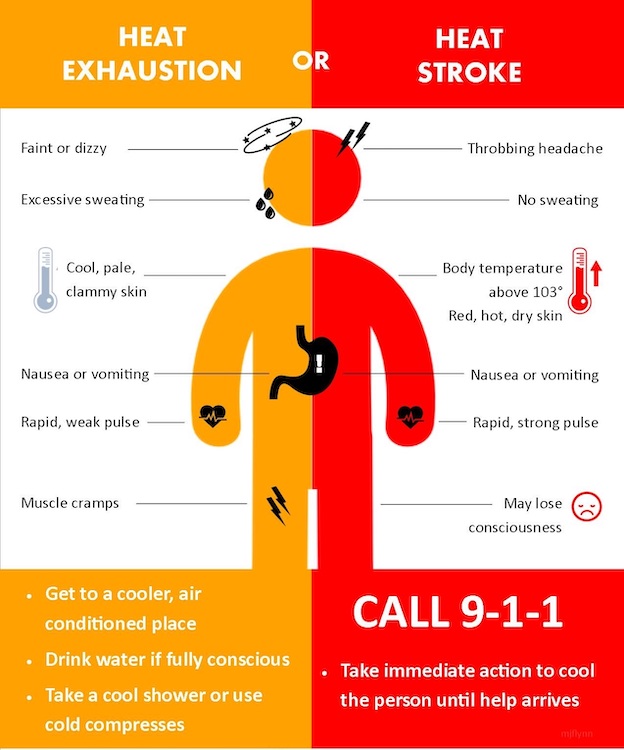
Our bodies (and the bodies of other living organisms) can only survive temperatures within a certain range. High humidity can make it even harder to withstand high temperatures (which is why weather reports typically include a “heat index” or might even talk about the “wet-bulb” temperature.) Air pollution also tends to worsen during periods of excessive heat, which makes heat waves even more deadly. Studies show that the risk of a fatal heart attack may double during heat wave days and fine particulate pollution days.
Prolonged exposure to excessive heat can cause heat cramps, heat rash, dehydration (note: severe dehydration requires immediate medical attention), heat exhaustion, and heat stroke (which also requires immediate medical attention and can be fatal). See the graphic above for tips on how to tell the difference between heat exhaustion and heat stroke, and what to do if someone is showing symptoms of these.
Those who are particularly vulnerable to the dangers of extreme heat include: homeless/unhoused people (and their pets), older people, people who work outdoors (e.g., farmworkers, landscapers, construction and road workers, etc.), people who work and/or live in non-air-conditioned spaces, people who live or work in urban areas or “heat island” zones (areas that have a lot of dark and unshaded surfaces, such as asphalt pavement and roofs, and relatively few trees or green spaces), people with pre-existing health conditions or disabilities, infants and young children, pregnant women, incarcerated people, first responders, and athletes, as well as livestock, pets, and wildlife.
Basic tips for survival, health, and greater comfort in high heat:
The following are immediate or short-term steps you can take to protect yourself and other living things during a period of extreme heat. (For preparations you can make before summer heat waves to keep your home/buildings cool, scroll down to the section near the end on “Design strategies, home/building improvements and investments.”)
- Always stay well-hydrated (i.e., drink plenty of water throughout the day). Keep a water bottle with you wherever you go (but don’t leave plastic bottles in hot cars or sitting in the sun, where the heat will soften the plastic, which will then leach into your water). Also eat foods that are hydrating (e.g. fresh fruits, such as watermelon and cucumber). Avoid drinking alcohol or caffeinated or super-sugary drinks.
- Wear loose-fitting, lightweight, and light-colored clothing.
- Avoid going out into the heat (or exercising, watering your garden, or driving) during the hottest parts of the day (afternoon through early evening). Cancel or reschedule activities as needed. Early morning is the coolest time of day.
- If you’ve been sweating a lot, drink even more, eat something salty, and make sure you’re getting plenty of electrolytes (potassium, sodium, calcium) and other minerals and nutrients.
- If you’re feeling too hot, wipe a cold, wet washcloth on your face and body and/or run cold water over your feet and hands or head; or put some water in a spray bottle and spritz yourself as needed; or when you can, take a cool shower or bath. Or you can sit in front of a fan with a cool, damp towel on you or between you and the fan. If someone is over-heating (e.g., showing signs of heat exhaustion), put cold water (or ice/ice water) on the neck, armpits, inner thighs, and other places where heat gets trapped and a lot of blood vessels are just beneath skin, to help cool down the person faster.
- No one should be left sitting in a non-air-conditioned, stationary car when it’s hot out (especially infants, children, elderly or disabled people, and pets). Rolling the windows down does not keep cars cool enough when the sun is beating on them.
- If you’re outdoors: Stay in the shade as much as possible, and drink extra water. Take regular breaks from any physical exertion, or avoid it if possible. If you have a hand free, use a parasol (or an umbrella) to shade yourself from the sun.
- If you’re indoors and you don’t have air conditioning or your A/C isn’t working (or doesn’t work well enough in extreme heat)—or if you’re trying to minimize your use of the A/C to conserve energy or money or to keep the power grid from collapsing and causing a blackout: 1) Use fans (or evaporative “swamp” coolers in really dry climates); window fans can be especially helpful. 2) Cover your windows by closing the shades, blinds, curtains, or shutters. If you don’t have opaque or thermal window coverings, you could temporarily put up big sheets of cardboard (ideally white, and make the white side face the outside) or rigid foam/styrofoam—or hang thick blankets or light-colored tarps (or sheets) inside or outside your south- and west-facing windows (for those of us in the northern hemisphere) or your windows that get the most direct sunlight, to keep the heat/sun out. 3) If you have white (or reflective) tarps or old sheets, you could put those on the part of your roof that gets the most direct sun in the afternoons, or cover up part of your blacktop driveway, or cover your grill (or any other large metal or dark-colored objects near your home) with them (or a light-colored canvas carport or other shade structure) to reduce the heat island effect on or around your home. 4) Avoid running the oven, stove, dishwasher, washing machine, and dryer on the hottest days, and especially during the hottest hours of the day. 5) Turn off any lights that aren’t needed (especially any lamps that are still using old incandescent bulbs or halogen bulbs, as they emit a surprising amount of heat). Unplug appliances or electronics that you aren’t using. 6) Any time it’s cooler outdoors than in (which it often will be at night and early morning), open your windows to get a cross-breeze (and give your A/C a break); you could also use a window fan as an exhaust fan to help push the warmer indoor air outside. 7) It can be too hot to share a bed with someone else; if there’s nowhere else to sleep, you might find that sleeping on a floor is the coolest place to be. 8) If you have a basement, that is probably the coolest area in your house.
- Make sure you have a lot of ice (and/or ice packs) in your freezer and/or coolers, especially in case there is a power outage and you need to use the ice to keep yourself cool until you can get to an air-conditioned space.
- If your house is too hot and you’re able to go somewhere else near-by, spend some of the afternoon hours in air-conditioned spaces, such as a library, mall/store/cafe, movie theater, or community center.
- Click here for additional ”Tips from readers on keeping cool without A/C” (NPR).
- Check on your neighbors and friends, especially elderly or disabled people and people who don’t have air-conditioning (or who are experiencing a power outage). Make sure they are not showing signs of dehydration, heat exhaustion, or heat stroke (see graphic above). If you have air conditioning and a little extra space, invite others who don’t have A/C to come over to your house. Or let others borrow or keep any extra fans you may have.
- Share information about local cooling centers that are open in your community or county. Print and post/distribute that information at homeless shelters and community/service centers, senior centers, soup kitchens, food banks, and libraries (and through social media and community websites, e.g., NextDoor). Find out if there are local Mutual Aid groups or others who are helping distribute water or assisting people in need. If your town does not provide a cooling center (or a mobile cooling bus), contact your Mayor or city council or local emergency services department to request one, or help find a location that could serve as one (e.g., community center, church, etc.).
- You could leave some bottles/gallons of water in front of your house, in a fully shaded area, with a sign letting people know they can take one if they need it. And you could donate non-disposable (and disposable) water bottles (or clean gallon jugs with caps) to a local homeless shelter or organization.
- On days/nights with particularly extreme heat, if you are able, you could offer to pay for (or you could crowd-fund) an air-conditioned motel room for a homeless person or family or for people who don’t have air conditioning. Or make a donation to a homeless/low-income services group that is assisting people in your area, or in a region that is even hotter.
- Scroll down to the section below on “Design strategies, home/building improvements and investments,” for suggestions on preparations you can make before summer to keep your home cool.
Animals
- Pets: Do not make pets stay outside (or in a dog house) if it’s cooler in your house. When they must be outside, make sure they can remain in full shade and have plenty of water (you could even fill a small kiddie pool for them to sit in or drink from). (Note: Absurdly, many outdoor hoses have lead in them. Buy/use a lead-free hose, or get drinking water directly from a faucet.) Give them extra water indoors, as well. Do not walk dogs on artificial grass or on hot pavement (especially black asphalt, but on any pavement when it’s hot out); it will burn their paws. Do not leave pets unattended in your car without air conditioning running. Click here for information on hot weather safety (and signs of heat stroke) for pets. If you see someone else’s pet in distress or in danger, call 911 or your local Humane Society or ASPCA.
- Livestock and horses: Give them plenty of water every day (making sure they never run out) and access to shaded and well-ventilated areas (with a good cross-breeze and if indoors, also fans, if possible). If they have no shade trees (or not enough to shade all of them throughout the afternoon without crowding) or a large-enough shade shelter outside, put up some type of shade canopies (e.g. canvas carports) for them. Hose them off with cool water when you can, or provide ice blocks for them to lick, or sprinklers, wading pools, or water misters when possible.
- Wildlife: Put a bowl of clean water out daily for wildlife in your area (ideally in both your front and back yards); thoroughly wash the bowl out every day, if possible. I like to use a light-colored ceramic (or white plastic) bowl that won’t absorb much extra heat. (Note: Absurdly, many outdoor hoses have lead in them. Buy/use a lead-free hose, or get drinking water directly from a faucet.) Don’t set out deep buckets of water that tiny animals could fall into and not be able to climb out of. You can also leave fruit and vegetable scraps and other healthy food out for wildlife. And if there is no shade in your yard, you could put up a shade canopy/sail or make a temporary shade shelter (e.g., with old sheets or large cardboard boxes). Shade as much of your paved areas as you can to reduce the heat absorption on your property. If you see an animal in distress or in danger, contact your local wildlife rescue group.
Plants & Trees
- Water plants at their base (near the roots) early in the morning. (On especially hot days, they might also need some water in the evening, but you generally shouldn’t soak plants too much before night-time.) Young or non-native trees (and new plants, planted within the last couple of years) especially will need regular watering during heat waves. Older, established trees may need some water every few days during heat waves.
- Move potted (portable) plants to shadier areas or cooler areas, especially to protect them from the afternoon/western sun.
- On especially hot/sunny days, you could put shade cloth (or a lightweight, white sheet) over the most vulnerable plants, or shade them with an umbrella, an easy-up canopy, or other portable shade structure.
- Put a few inches of mulch (e.g., grass clippings, fallen leaves, wood mulch) around the base of plants (and place mulch several inches away from the base of trees). Do not buy peat.
- Do not prune or fertilize plants on hot days.
- Some plants will simply not be able to survive the increase in temperatures, and we’ll need to replace some plants with more drought- and heat-adapted plants over time.
- Crops can benefit from having solar panels placed between rows for shading.
- You can find lots of additional tips regarding how to protect plants and trees during heat by doing an online search.
———————————————–
Design strategies, home/building improvements and investments:
These are some design strategies and investments, which require some planning or preparation time to implement:
- Put thermal/insulated window coverings on your windows (e.g., light-colored thermal “honeycomb” or “cellular” shades, “edge-sealed” shades, thick/lined drapes; or interior shutters), particularly on large, unshaded windows and west- and south-facing windows.
- Add awnings, shutters, overhangs, exterior window shading screens, and/or shade trees outside of your home (particularly outside of west- and south-facing windows). Also plant trees next to (ideally on the south or west side of) dark, paved surfaces such as driveways and roads.
- Make sure your home has enough insulation (especially in the attic and walls). This will also help you stay comfortable during cold periods.
- Conventional air conditioners (especially old window units) use a lot of energy (and are therefore expensive to operate). And every time we use air conditioners to cool interior spaces, we’re heating the planet up even more. Much better air conditioning technologies now exist, and even better ones may be available soon. One option to consider is having a “heat pump” installed (also known as a ductless mini-split system; they provide both heating and cooling). These are much more efficient than traditional air conditioners, and there are tax incentives and rebates that you might be eligible for. Or in very dry climates, many people use evaporative “swamp” coolers rather than air conditioners. Whole-house attic fans can also help reduce the need for air conditioning. (Note: If you are replacing/getting rid of an old air conditioner, make sure that your HVAC company properly recovers and disposes of its refrigerants. A/C refrigerant emissions are a major contributor to global warming!)
- When it’s time to replace your roof, choose light-colored roofing (and/or solar roofing tiles, or solar panels to shade the roof).
- When you’re able to get new windows, choose windows that meet or exceed the Energy Star criteria (for your climate zone). They could be eligible for tax credits or rebates.
- When it’s time to repave your driveway (or pathways), choose a light-colored paving material or pavers (rather than black asphalt paving), or better yet, replace some paved areas with light-colored pervious materials or vegetation. (Also ask your city to use light-colored—and ideally pervious—paving materials on city streets and parking lots.)
- When choosing a car, in addition to choosing an electric or hybrid vehicle, choose one that’s a light color (e.g., white or silver) so it will not absorb as much heat. (Having light-colored interior upholstery will also help keep the car cooler in the sun.)
- Do NOT use artificial turf (fake grass). It becomes incredibly hot, even hotter than black asphalt(!), in the sun, and it can cause burns. (Never walk your dog on astroturf or on asphalt when it’s hot out.) Replace astroturf with native or adapted drought-tolerant plants, trees, groundcovers, or a clover lawn. Replace astroturf sports fields with real (but ideally drought-tolerant) grass (and don’t use herbicides or pesticides on the grass).
- Solar photovoltaic panels can provide shade over roofs, pavement, and between rows of field crops.
- Consider getting an electric battery backup system for your home; ideally, this would be tied into a solar photovoltaic (or wind turbine) system to keep your power (and cooling) on during extended power outages. You can also get an electric and/or solar generator to use during power outages (or off grid).
- When designing any new home (or building), designers should incorporate passive cooling techniques. One ancient, passive cooling technique is the “wind catcher” design. And some building materials, such as rammed earth, have thermal properties that help keep homes cool in summer and warm in winter. Find other natural cooling strategies here.
- Get light-colored shade structures/shelters (or canopies) for any large animals or livestock you have (or pets that have to spend a lot of time outside) that will provide plenty of shade for all of them, without crowding. Also add shade trees to their outdoor areas. Look into water misting systems, sprinklers, or wading pools that you could add to their outdoor areas, and use fans, roof exhaust vents/fans, and open windows to ventilate their indoor areas.
- Buy organically grown crops and plants (and native/drought-tolerant plants), which have been shown to have greater resilience to heat than chemically-grown (and many non-native) crops and plants. You could get a shade structure/canopy to place on your patio or deck or yard, to shade any potted/portable plants (and it could also shade your grill or other dark-colored or metal outdoor objects, or possibly shade part of your home/windows) from the sun on hot days.
- There are SO MANY things we can all do (and our society, government, and industry must do) to try to stop global heating from getting worse. Please check out and commit yourself to some of the climate solutions we’ve identified.
————————-
Sign this petition:
Urge OSHA to implement immediate heat standards
(Note: These standards also must be enforced everywhere.)
Articles:
- “The heat wave scenario that keeps climate scientists up at night,” by Jeff Goodell, New York Times, 2024
- “Chief Heat Officers are developing a global playbook for deadly temperatures,” Bloomberg, 2024
- “For unhoused people in America’s hottest large city, heat waves are a killer,” by Osha Davidson, Yale Climate Connections, 2023
- “A letter from Phoenix: Record-breaking heat is the latest signal of a climate in crisis,” by Osha Davidson, Sierra Magazine, 2023
- “Risk of fatal heart attack may double in heat wave and fine particulate pollution days,” American Heart Association, 2023
- “For pregnant people, heat waves bring an increased risk of preterm and early term babies, study finds,” by Victoria St. Martin, Inside Climate News, 2024
- “How Extreme Heat Affects the Body After 50,” AARP, 2022
- “Resilient Design: Natural Cooling,” by Alex Wilson, Resilient Design Institute, September 2012
- “Passive Survivability / passive design strategies,” Wikipedia
- “Wind Catchers: Is ancient technology better than modern air conditioning?,” Big Think, 2021
- “Solar power bails out Texas grid during major heat wave,” Scientific American, 2023
- “Future Heat Waves Will Kill Power and AC—and People,” by Candace Pearson, BuildingGreen, 2023
- “2023 Likely to be Among the Coolest in the Next 20 Years,” by Alex Wilson, Resilient Design Institute, 2023
Useful resources on heat health/safety:
- Global Heat Health Information Network
- Extreme Heat Safety (Red Cross)
- Heat.gov
- Heat Safety information (National Weather Service)
- Extreme Heat information (CDC)
- Extreme Heat Equity information, from Rose Jones, Ph.D., Rapid Anthropology Consulting
- The Medical Society Consortium on Climate & Health
- Physicians for Social Responsibility: Health Leadership on Climate
- Extreme Temperatures Around the World (on Twitter @extremetemps)
- Wet-bulb temperatures (and human health)
- Book: The Heat Will Kill You First: Life and Death on a Scorched Planet, by Jeff Goodell
Related posts:
- Climate Actions for All of Us (includes a checklist you can download)
- Climate-Related Solutions, Tips, and Resources
- Resilience: Disaster-Resistant, Adaptive, and Restorative Design and Planning
- Tips for Emergency Preparedness and Disaster Response
- Tips for Saving Energy (and Money)
- Re-Tree the World
- Wildfires and Risk Reduction


 This is a listing of some legal organizations that I recommend following, learning more about, and potentially supporting. They all use the law to try to serve and support the common good in various ways: to protect humans and human rights, civil rights, and civil liberties; to protect animals and the rights of non-human species; and/or to protect nature, our shared environment, and the livability of our planet.
This is a listing of some legal organizations that I recommend following, learning more about, and potentially supporting. They all use the law to try to serve and support the common good in various ways: to protect humans and human rights, civil rights, and civil liberties; to protect animals and the rights of non-human species; and/or to protect nature, our shared environment, and the livability of our planet.

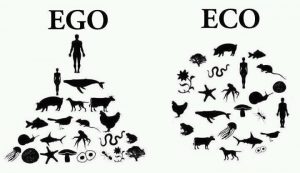







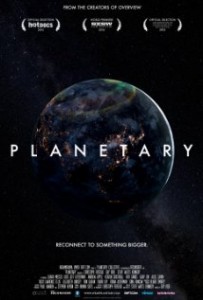
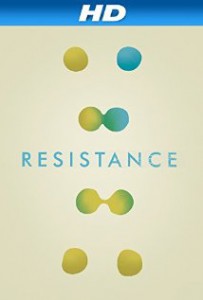



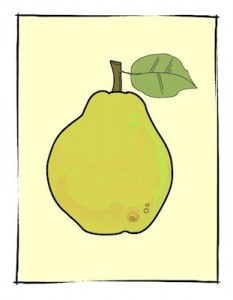 These resources are organized into the following general categories (though some are relevant to more than one category):
These resources are organized into the following general categories (though some are relevant to more than one category): 

